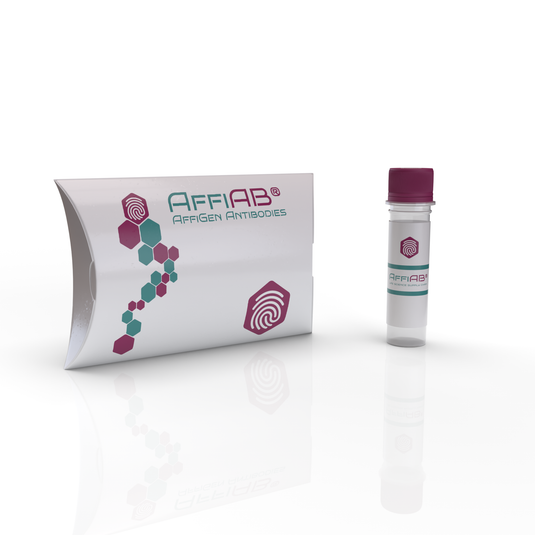AffiAB® Goat anti-pHluorin Polyclonal IgG Antibody is a high-quality product designed to detect and measure pHluorin proteins. It is an ideal choice for Western blot, ELISA, and other immunoassay techniques in both research and clinical settings.
The AffiAB® Goat anti-pHluorin Polyclonal IgG Antibody is an antibody specifically designed to target and detect the pHluorin protein. pHluorin is a genetically encoded fluorescent protein derived from green fluorescent protein (GFP) that undergoes a change in fluorescence intensity in response to changes in pH.
This polyclonal antibody is produced by immunizing goats with purified pHluorin protein or a specific peptide sequence derived from pHluorin. After immunization, the antibody is purified from goat serum to ensure high specificity and quality.
The AffiAB® Goat anti-pHluorin Polyclonal IgG Antibody is widely used in research applications to study pH dynamics and intracellular pH changes in living cells. pHluorin is often employed as a pH-sensitive probe in cell biology to monitor pH fluctuations within various cellular compartments and organelles.
By utilizing the affinity of the antibody for pHluorin, researchers can visualize and quantify pH changes in real time. This antibody is commonly used in techniques such as immunocytochemistry, immunofluorescence, and flow cytometry to detect and track pHluorin-expressing cells and monitor pH fluctuations.
It is important to note that the AffiAB® Goat anti-pHluorin Polyclonal IgG Antibody specifically targets pHluorin and may not cross-react with other fluorescent proteins or pH-sensitive probes. Researchers should validate the antibody's performance and specificity in their specific experimental conditions and include appropriate controls.
In summary, the AffiAB® Goat anti-pHluorin Polyclonal IgG Antibody is a valuable tool for studying pH dynamics and intracellular pH changes in living cells. It allows researchers to visualize and quantify pH fluctuations using pHluorin as a pH-sensitive probe, contributing to a better understanding of cellular processes and signaling pathways regulated by pH.

